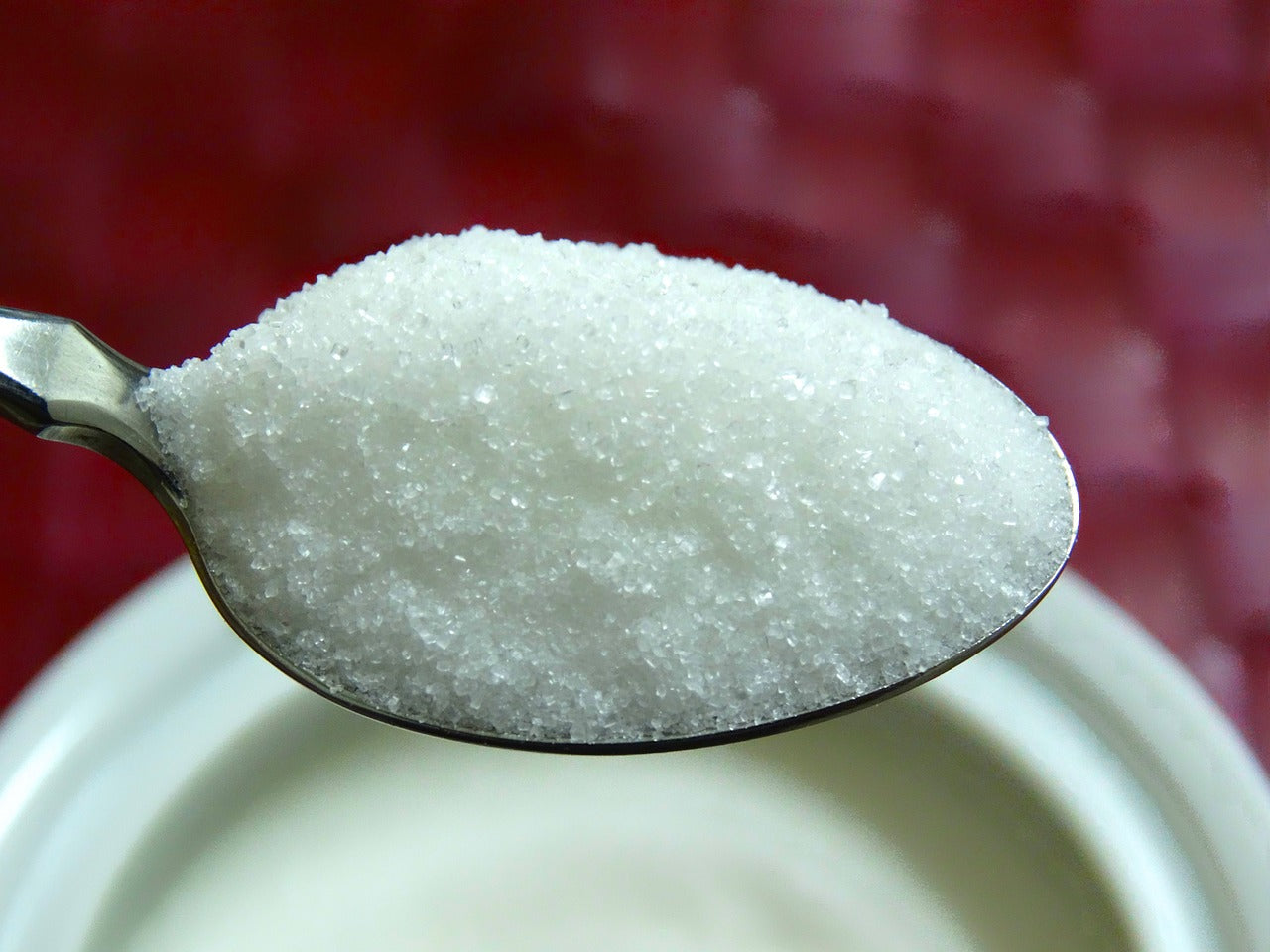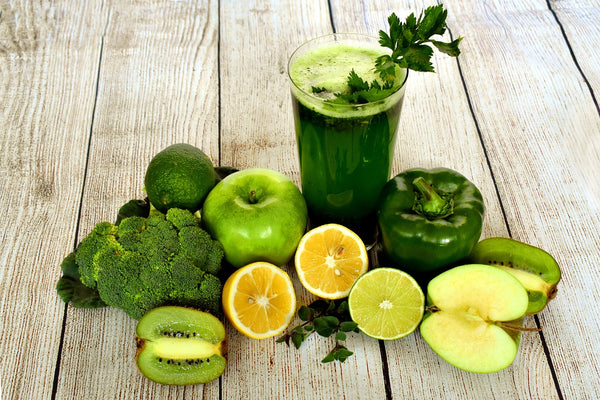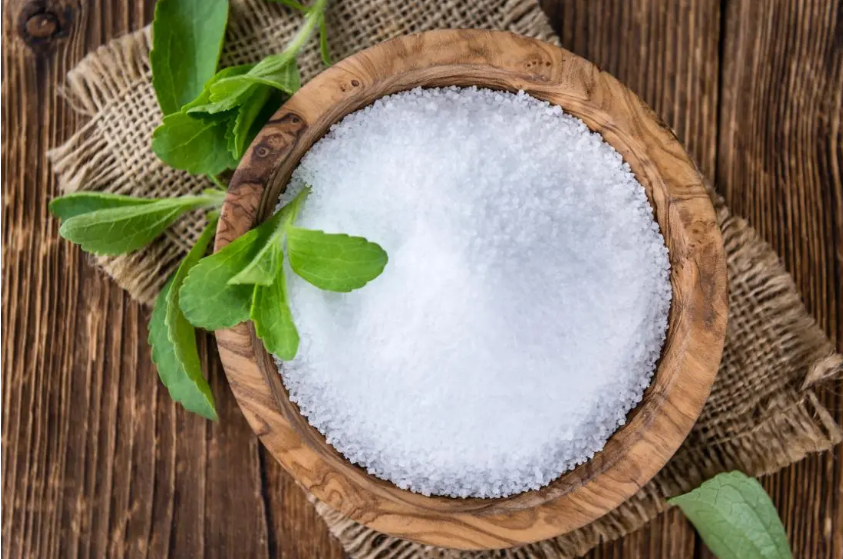
Stevia Vs Aspartame: Which is Best for Your Health?
Recently, people have been looking for a low-calorie yet healthy food option. One such item includes food sweeteners. The popularity of artificial sweeteners is rising as individuals seek a low-calorie alternative to sugar.
In this regard, Stevia and Aspartame are among the most effective sources of sugar. However, are they good for your health? Is it effective to use them instead of table sugar? So, if you are considering switching to natural sweeteners, this post is a must-read.
However, it's essential to recognize that even natural sweeteners are a form of added sugar. The key issue lies in the quantity of sweeteners, whether natural or artificial, being incorporated into one's diet. When used in moderation, neither type should pose significant harm.
In fact, one might question the necessity of using natural or artificial sweeteners. This is true when you can calculate the required refined sugar intake and balance the calorie counting.
In this post, we will delve into two of the most popular sweeteners that have recently garnered considerable attention: Stevia and Aspartame. We will explore how each of these sweeteners can potentially benefit your health.
But before we delve into the details, let's begin by briefly examining what artificial sweeteners are and how they work. This will enable us to compare these sweeteners side by side.
If you are looking to cut down your sugar then you must try our stevia tablets, a perfect sugar alternative.
What are Artificial Sweeteners?

Source: Image by Unsplash
Artificial sweeteners, or sugar substitutes, are synthetic compounds introduced into certain food and drink items to impart a sweet flavor. They are frequently described as "intense sweeteners" due to their ability to mimic the taste of regular sugar, albeit being many times sweeter, often by several thousandfold.
Although a few of these sweeteners possess caloric content, the quantity required to sweeten products is so minuscule that their consumption contributes virtually negligible calories to your diet.
How Do Artificial Sweeteners Work?
Your tongue's surface has numerous taste buds, each with multiple taste receptors for detecting various flavors. When you consume food, these taste receptors come into contact with molecules from the food.
A precise match between a receptor and a food molecule triggers a signal to your brain, enabling you to recognize the taste. For instance, the sugar molecule fits snugly into the sweetness receptor, allowing your brain to perceive the sweet taste.
Artificial sweetener molecules are structurally similar enough to sugar molecules to fit into the sweetness receptor. However, they generally differ significantly from sugar in a way that prevents your body from metabolizing them into calories. This is how they deliver a sweet taste without adding extra calories.
Only a minority of artificial sweeteners possess a structure that your body can convert into calories. Considering that minuscule amounts of artificial sweeteners are required to impart sweetness to foods, the calorie intake from these sweeteners is practically negligible.
Also read:
- Stevia vs Sugar: Which is better?
Researchers Take on Artificial Sweeteners
These sweeteners' existence is driven by individuals' desire to enjoy sweet-tasting foods and beverages without the caloric content of sugar. Over time, It can pose a reduced calorie intake that will lead to less weight gain, increased loss of excess weight, and a reduced risk of weight-related issues like diabetes and high blood pressure.
While these assumptions lack definitive proof, they appear to be sensible. For example, a 12-ounce can of Coca-Cola contains nearly ten teaspoons of sugar, amounting to 140 calories.
Over time, accumulating such empty calories can result in substantial weight gain. Consequently, non-caloric sweeteners have long been a staple for individuals pursuing weight management or seeking to restrict their calorie and sugar intake.
What is Stevia?

Source: Image by PhotoMIX Company on Pexels
Stevia comes from the leaves of the Stevia rebaudiana plant, although the leaves themselves are not the predominant component in the production of Stevia. Instead, the sweet-tasting compounds, known as glycosides, are present in these leaves.
These glycosides undergo extraction dehydration and are subsequently refined to create the plant-based sweetener known as Stevia. Typically, various brand sells and markets this product, and it is available in different forms, including dry powder and liquid variations.
Nutritional Value of Stevia
While Stevia products are primarily popular for their sweet leaves, making them an excellent sugar substitute. However, it's crucial to emphasize that Stevia also encompasses a diverse array of antioxidant compounds. These include triterpenes, tannins, flavonoids, caffeic acid, kaempferol, and quercetin.
Furthermore, the stevia plant contains various beneficial components such as protein, fiber, iron, magnesium, potassium, sodium, vitamin C, and vitamin A. However, when consumed in the form of a natural stevia sweetener, these additional elements are present in minimal quantities. Instead, it's the presence of these smaller organic compounds that contribute to the numerous health benefits associated with Stevia.
Health Benefits of Stevia
Opting for Stevia as a sweetener instead of sucrose, commonly known as table sugar, holds the promise of significant health advantages.
- Diabetes-friendly: Stevia contains no sugar, so it has no impact on blood glucose levels. Even more noteworthy is that the consumption of Stevia can potentially reduce blood sugar levels.
- Calorie-free: With a calorie count of zero, substituting sugar with Stevia in your daily diet can reduce total calorie consumption. This can be especially beneficial for individuals striving to lose excess weight.
- Lowers cholesterol: The intake of Stevia leads to a reduction in both overall cholesterol and LDL cholesterol levels. Consequently, it serves as a heart-healthy substitute for sugar.
- Anti-cancer properties: A component present in Stevia can selectively target and eliminate cancerous cells, thereby inhibiting the continued advancement of cancer growth.
What is Aspartame?
Aspartame is an artificial sweetener from the natural amino acids phenylalanine and aspartic acid. Phenylalanine is an essential amino acid, meaning you must obtain it from food sources since your body cannot synthesize it. In contrast, your body also does not produce aspartic acid.
However, there is a drawback associated with the metabolism of Aspartame: it produces methanol as a byproduct. Excessive methanol can pose health risks, and even small quantities can be harmful when combined with free methanol.
Nevertheless, it's important to note that reaching the recommended maximum methanol intake is highly challenging, even for individuals who consume significant amounts of Aspartame, such as children. So, there is generally no need for concern in this regard.
Nutritional Value of Aspartame

Source: Image by Marijana1 on Pixabay
Aspartame is a variety of low-calorie sweetener derived from two prevalent amino acids: aspartic acid and phenylalanine. These amino acids naturally occur in various foods, including fruits, vegetables, meats, and eggs. Aspartame does indeed contain calories, with four calories per gram, mirroring sugar's calorie content.
Also read:
However, Aspartame's sweetness is approximately 200 times stronger than sugar's. It means only a minuscule quantity is necessary to achieve the same level of sweetness. Consequently, in products like chewing gum, beverages, yogurt, and pharmaceuticals, only a small amount of Aspartame is present for sweetening purposes. It effectively keeps the calorie content very low per serving.
Health Benefits of Aspartame
- Weight control: Given the prevalent issues of overweight and obesity and their associated health concerns, maintaining a healthy weight necessitates a balance between calorie consumption and physical activity. An essential aspect of this balance is discovering methods to decrease calorie intake while preserving taste and culinary enjoyment. Numerous studies prove that low-calorie sweeteners such as Aspartame can contribute to achieving this goal.
- Prevent tooth decay: Low-calorie sweeteners such as Aspartame do not stimulate the production of acids in your mouth that can lead to tooth decay, thus safeguarding dental health.
- Manage diabetes: Low-calorie sweeteners can play a significant role in both preventing and managing diabetes. Substituting sugars with low-calorie sweeteners offers individuals with type 2 diabetes substantial flexibility in pursuing their health objectives and adhering to their dietary preferences. Aspartame, in particular, enables individuals with diabetes to fulfill their sweet cravings without causing a spike in their blood sugar levels.
- Enhances and extends flavours: Aspartame boasts a clean and sugar-like taste, enhancing the fruity and citrusy flavors in various food and beverage products. In the case of chewing gum, it also extends the sweetness, maintaining it up to four times longer compared to gum sweetened with regular sugar.
Comparison of Stevia & Aspartame
|
Characteristic |
Stevia |
Aspartame |
|
Source |
Natural plant extract |
Artificial chemical |
|
Origin |
Derived from Stevia rebaudiana plant |
Synthesized in a lab |
|
Sweetness |
About 50-300 times sweeter than sucrose (table sugar) |
About 200 times sweeter than sucrose |
|
Calories |
Generally considered calorie-free |
Virtually calorie-free |
|
Taste |
It may have a slightly bitter or licorice-like aftertaste |
Typically, it has no aftertaste |
|
Stability |
Heat-stable, suitable for cooking and baking |
It breaks down when exposed to high heat, limiting its use in cooking |
|
FDA Approval |
Generally recognized as safe (GRAS) by the FDA |
Approved as a food additive by the FDA |
|
Metabolism |
Metabolized by the body to some extent, but does not affect blood sugar |
Metabolized by the body but provides no calories and does not affect blood sugar |
|
Safety Concerns |
They are generally considered safe for most people. |
Considered safe for most people but may cause issues for individuals with phenylketonuria (PKU), a rare genetic disorder |
|
Market Availability |
Widely available as a natural sweetener |
Commonly used in various low-calorie and sugar-free products |
|
Use in Products |
Used in a variety of food and beverage products, including soft drinks, teas, and desserts |
It is commonly found in sugar-free and diet products such as sodas and sugar-free gum. |
Taste and Culinary Applications

Source: Image by Pixabay
Stevia Sweetener
Stevia imparts sweetness with the possibility of a licorice-like aftertaste. Its ability to withstand high temperatures makes it suitable for culinary applications such as cooking and baking. However, it's important to note that Stevia's distinct aftertaste can influence the dishes' overall flavor.
Aspartame
Aspartame provides a sweet and pure taste that closely mimics sugar. Nevertheless, it tends to lose its sweetness when exposed to high temperatures, making it less ideal for cooking.
Conclusion
To sum up, the discussion surrounding Stevia and Aspartame is complex, touching upon various factors, including health, flavor, and environmental impact. Stevia presents a natural option with potential health advantages, while Aspartame closely replicates the taste of sugar.
Ultimately, the decision between these two sweeteners frequently comes down to personal preferences and specific usage scenarios. As responsible consumers, staying well-informed and grasping the subtleties of our dietary choices is crucial.






